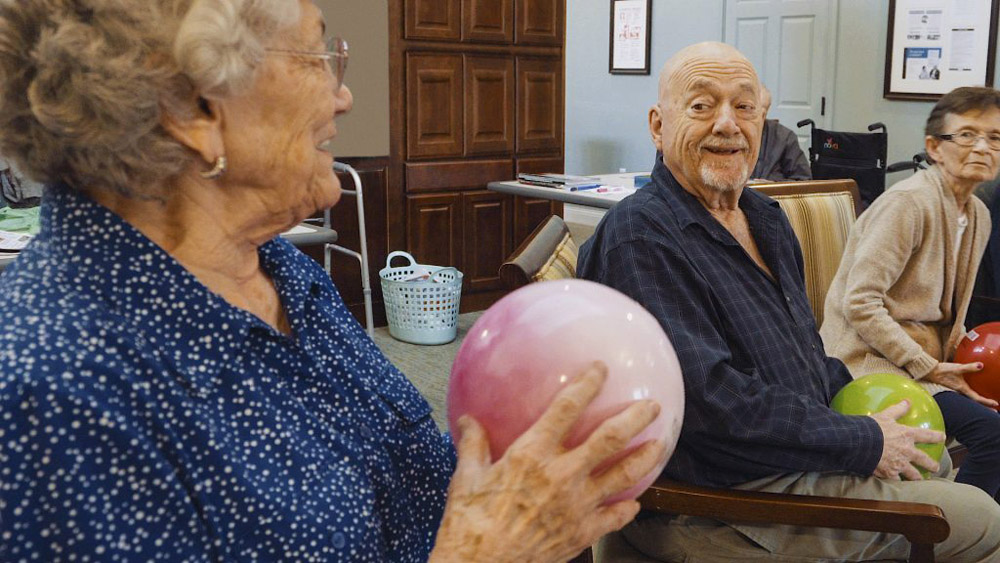Specialized Alzheimer’s Programs that Promote Familiarity
Browsing Memory Care Options: What Families Required to Know
As families encounter the tough task of navigating memory care choices, it is necessary to come close to the decision-making process with a clear understanding of the varied sorts of care readily available. From household centers to at home assistance and grown-up day care, each option provides special benefits and considerations. Assessing these centers needs a detailed assessment of team credentials, precaution, and the overall setting. The journey does not end there; financial implications and readily available support resources also play a pivotal function in shaping informed choices for loved ones. What aspects should family members focus on in this complicated landscape?
Comprehending Memory Care Types
Frequently, individuals and family members encountering the challenges of cognitive decline encounter numerous kinds of memory care choices designed to satisfy diverse requirements. Memory care can be extensively classified right into household care facilities, in-home care, and adult daycare solutions. Each option supplies special benefits customized to certain requirements - Memory Care Charlotte.Residential care centers, typically described as memory care systems, provide specialized settings with experienced team that focus on the unique requirements of residents with dementia or Alzheimer's condition. These centers usually use structured regimens, protected settings, and social tasks focused on enhancing cognitive function.In-home care enables people to remain in the comfort of their very own homes while getting personalized support from caregivers. This option offers flexibility and can be changed according to the person's advancing demands, promoting familiarity and comfort.Adult daycare services provide temporary care throughout the day, enabling caregivers break while guaranteeing that their loved ones take part in promoting activities. This alternative can be particularly beneficial for family members balancing job and caregiving responsibilities.Ultimately, understanding these memory care kinds empowers family members to make educated choices that enhance the top quality of life for their liked ones encountering cognitive decline
Reviewing Care Facilities
When examining care facilities for individuals with memory problems, it is vital to filter through numerous factors that contribute to an encouraging and efficient environment. Begin by taking a look at the center's personnel certifications and training, ensuring that caregivers have specialized knowledge in memory care. A high staff-to-resident ratio is important, as it usually indicates tailored attention and care.Next, consider the facility's physical setting. It should be safe and safe, with functions that decrease complication and promote independence. Search for clear signage, organized designs, and sensory excitement that can boost locals' interaction. Furthermore, ask about the programs and tasks offered, as these should be tailored to locals' cognitive levels and rate of interests, promoting social communication and cognitive stimulation.Furthermore, observe the total ambience throughout your visit. A welcoming and caring culture is vital for the health of homeowners. Interaction with families is another essential aspect; facilities should maintain open lines of discussion pertaining to homeowners' progression and needs. Lastly, seek comments from existing citizens' families to gauge fulfillment and experiences, as this can give understandings into the center's overall top quality of care and support.
Trick Factors To Consider for Households
Selecting a memory care center is a considerable decision for family members, and comprehending essential factors to consider can facilitate a smoother procedure. First, assess the center's track record and quality of care. Study on the internet testimonials and seek recommendations from medical care professionals or assistance groups. Checking out prospective centers is important; observe the setting, team communications, and total cleanliness.Next, assess the staff-to-resident ratio, as a lower ratio frequently represents even more individualized focus. Ask about personnel training and experience, specifically pertaining to memory care, to ensure they are furnished to deal with the particular demands of residents.Consider the center's format and layout. A protected, quickly navigable atmosphere can enhance safety and convenience for individuals with cognitive problems. Try to find interesting tasks that promote socialization and cognitive excitement, which are essential for citizens' health. Finally, communication is critical. Validate the facility preserves open lines of interaction with family members concerning their enjoyed ones' progress and any kind of problems. By considering these factors, households can make enlightened choices that ideal support their liked ones in a memory care setup.
Financial Aspects of Memory Care
Guiding through the financial facets of memory care is vital for households, as expenses can vary considerably based upon place, facility type, and the level of care needed. Memory care facilities usually range from $3,000 to $7,000 monthly, with higher-end facilities offering specialized services and features that add to increased costs. Memory Care.Families must take into consideration numerous funding this post options, consisting of exclusive pay, lasting care insurance policy, and Medicaid. Personal pay is the most common method, yet it can rapidly deplete financial savings. Long-lasting care insurance coverage can supply financial relief, though families need to confirm policy information and protection limits. Medicaid might cover memory care expenses for qualified people, but the application procedure can be intricate and lengthy.In enhancement to regular monthly fees, family members must also prepare for additional expenditures such as medical products, therapy solutions, and personal things. It is essential to evaluate the overall expense of care and prospective monetary impact on the family's budget. Involving with a monetary consultant experienced in elder care can provide valuable understandings and help households make notified decisions regarding memory care financing choices. Understanding these financial facets is vital for making sure that care is sustainable and meets the requirements of enjoyed ones

Assistance Resources for Caregivers
Caregivers play a crucial duty in sustaining people with memory problems, usually encountering special difficulties that can lead to physical and psychological pressure. To reduce these difficulties, various support resources are offered to caretakers, empowering them with the devices and aid they need to provide ideal care.Local and national organizations, such as the Alzheimer's Organization, provide academic sources, support teams, and helplines that connect caregivers with others in similar situations. These systems offer opportunities for sharing experiences, suggestions, and emotional assistance, which can be indispensable in reducing sensations of isolation.Additionally, respite care services enable caretakers to take time-outs, guaranteeing they can charge and reduce exhaustion. Many neighborhoods also use grown-up day programs, which supply structured activities for people with memory impairments, providing caregivers a much-needed reprieve (Memory Care Charlotte).Furthermore, on-line resources, consisting of webinars and discussion forums, can improve caregivers' expertise regarding memory care best methods. Engaging with these support group not only cultivates durability yet additionally enhances the top quality of care offered to people with memory impairments. Inevitably, leveraging these sources can considerably impact caretakers' wellness and their capacity to support their enjoyed ones properly
Often Asked Inquiries
What Are the Signs That Memory Care Is Required?
Determining the demand for memory care can be challenging. Secret indicators consist of substantial memory loss influencing daily tasks, constant disorientation or confusion, trouble with communication, and modifications in actions or state of mind. Additionally, if a liked one shows risky actions, such as wandering or overlooking individual hygiene, these may indicate a need for specialized care. Early treatment is necessary, permitting households to check out proper memory care choices customized to private demands.
Exactly How Can Families Interact Properly With a Loved One in Memory Care?
Reliable communication with a liked one in memory care requires perseverance, compassion, and simpleness. Use clear, straightforward language, and involve in individually discussions in a silent setting to minimize interruptions. Nonverbal hints, such as eye get in touch with and mild touch, can improve understanding. Motivate the private to reveal their sensations and thoughts, actively listen, and validate their feelings. Uniformity in routine and familiar topics can likewise promote a complacency and connection.
What Activities Are Normally Supplied in Memory Care Facilities?
Memory care facilities usually supply a selection of tasks designed to engage residents and promote cognitive function - Memory Care Charlotte. Typical tasks include arts and crafts, music treatment, workout, gardening, and group games that encourage social interaction. Furthermore, several facilities provide everyday routines that integrate cognitive stimulation via problems and memory treatment. These organized programs intend to enhance lifestyle, promote a sense of community, and maintain residents' physical and psychological health

Exactly How Can Families Prepare a Loved One for the Change to Memory Care?
Preparing a loved one for the modification to memory care entails several essential actions. To start with, interact honestly about the step, stressing the benefits of the new setting - Memory Care. Familiarize them with the facility with visits, promoting comfort. Include them in loading individual things to keep a sense of ownership. Furthermore, develop a regimen that consists of normal gos to, ensuring they feel sustained and connected. Finally, resolve their emotional demands, supplying reassurance throughout the procedure
What Civil liberties Do Citizens Have in Memory Care Facilities?
Citizens in memory care facilities are qualified to details civil liberties that assure their self-respect and wellness. These rights usually include the right to privacy, the right to get involved in decisions regarding their care, and the right to receive ideal medical attention. Additionally, locals should have accessibility to their personal valuables and the capability to take part in social and leisure tasks, cultivating a setting that supports their autonomy and lifestyle.